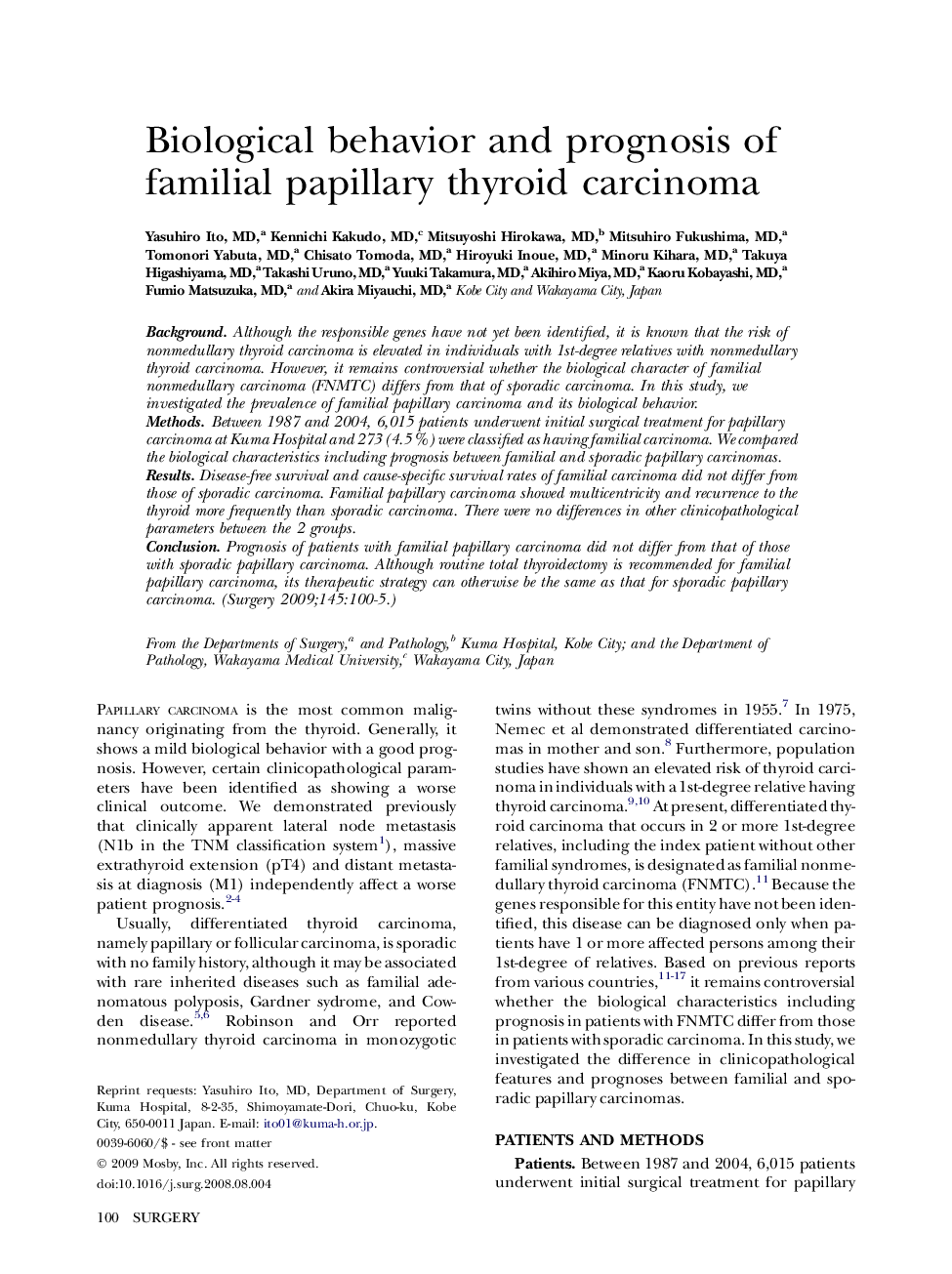| Article ID | Journal | Published Year | Pages | File Type |
|---|---|---|---|---|
| 4309524 | Surgery | 2009 | 6 Pages |
BackgroundAlthough the responsible genes have not yet been identified, it is known that the risk of nonmedullary thyroid carcinoma is elevated in individuals with 1st-degree relatives with nonmedullary thyroid carcinoma. However, it remains controversial whether the biological character of familial nonmedullary carcinoma (FNMTC) differs from that of sporadic carcinoma. In this study, we investigated the prevalence of familial papillary carcinoma and its biological behavior.MethodsBetween 1987 and 2004, 6,015 patients underwent initial surgical treatment for papillary carcinoma at Kuma Hospital and 273 (4.5%) were classified as having familial carcinoma. We compared the biological characteristics including prognosis between familial and sporadic papillary carcinomas.ResultsDisease-free survival and cause-specific survival rates of familial carcinoma did not differ from those of sporadic carcinoma. Familial papillary carcinoma showed multicentricity and recurrence to the thyroid more frequently than sporadic carcinoma. There were no differences in other clinicopathological parameters between the 2 groups.ConclusionPrognosis of patients with familial papillary carcinoma did not differ from that of those with sporadic papillary carcinoma. Although routine total thyroidectomy is recommended for familial papillary carcinoma, its therapeutic strategy can otherwise be the same as that for sporadic papillary carcinoma.
